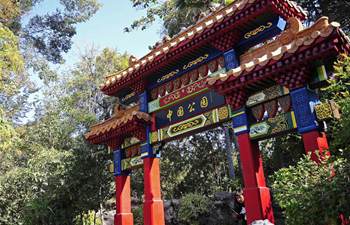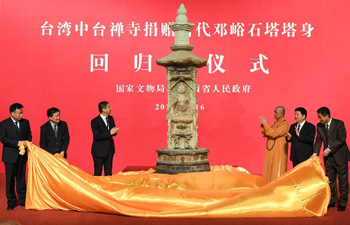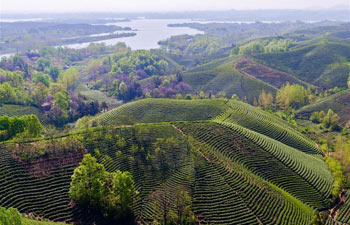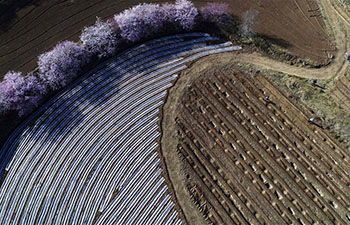URUMQI, April 17 (Xinhua) -- Memet Kadir and his son Enwaer Memet were born with a wooden spoon in their mouths.
The duo from Kalpin County, northwest China's Xinjiang Uygur Autonomous Region, have followed Kadir's father's footsteps after the best spoon maker in their village taught his craft to him.
Every spring, apricot trees do not just bring beautiful blossom to people in Kalpin. They also add flavor to their meals, not just through the delicious fruit, but by offering the wood to make the best spoons.
Thanks to the vast apricot forests here, people in Kalpin have been making and using apricot wood tableware, especially spoons, for more than 2,000 years.
However, with many cheaper and more durable plastic and metal alternatives, the art of making wooden spoons is fading. Memet Kadir and his son Enwaer Memet are some of the few craftsmen still making apricot spoons in Kalpin.
Despite their small size, making a good spoon requires many tools. Kadir says patience and great care are important in making a good spoon.
It usually takes them 20 minutes to carve and polish a spoon and each of them can make 20 to 30 spoons a day.
Wooden spoons are still the most popular tableware in Uygur households. Kadir sells their work in the local bazaar every two weeks. Their spoons always sell out within two hours.
Recently Kadir has branched out into making spoons with jujube wood, but the new products are not so popular because jujube wood has a stronger odor and a lighter color, says Kadir. Kalpin people still prefer to scoop their food into their mouths with the time-tested, fragrant apricot wood spoons.

















